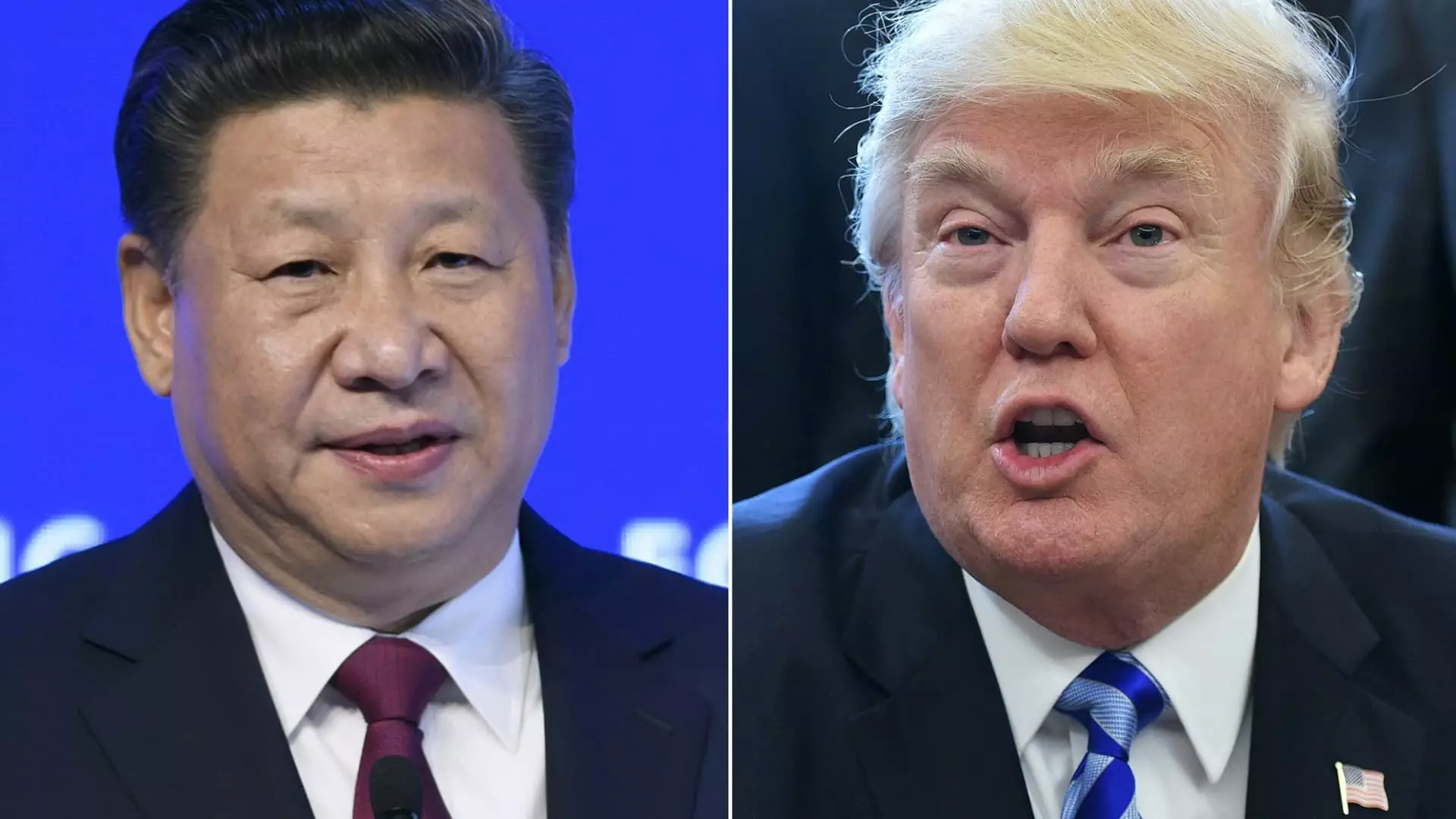The recent remarks by former President Donald Trump regarding China’s alleged violations of their preliminary trade agreement illustrate a classic case of rhetoric overshadowing reality. Insisting that China has reneged on the deal, Trump has not only aimed to save face but has inadvertently exposed the fragility of the entire trade negotiation process. With his declaration “So much for being Mr. NICE GUY!” he adopts a theatrical posture that perpetuates a cartoonish stereotype of negotiation dynamics: the tough guy versus the villain. Such oversimplified portrayals do little justice to the complexity of global trade relations and foster a shallow understanding of international economic frameworks.
From the onset, Trump’s abrasive approach to trade—characterized by imposing hefty tariffs—overlooked fundamental economic principles. While he clearly framed tariffs as essential tools to level the playing field for American businesses, the backlash of these actions often led to adverse repercussions, both domestically and abroad. The impending economic peril for China, as projected by Trump, seems more a product of political grandstanding rather than a sincere reflection of humanitarian concern. To claim that his “COLD TURKEY” strategy was altruistic seems disingenuous, revealing more about his inclination toward power politics than genuine partnership.
The Role of Perception in Trade Policies
The crux of the issue also weighs heavily on public perception and media framing. Trump’s tweets and public statements are crafted to evoke emotional reactions and rally his base, thereby turning every trade negotiation into a spectacle rather than a serious diplomatic undertaking. Take, for instance, his use of aggressive language like “HAS TOTALLY VIOLATED” and “DEVASTATING for them.” These attention-grabbing phrases may provoke outcry, but they distract from the significant nuances involved in international commerce, reducing them to sound bites tailored for social media virality. Consequently, this approach undermines the validity of substantial discussions that require attention to detail, compromise, and diplomacy.
In stark contrast, Trade Representative Jamieson Greer’s statement reflects a more grounded concern about China’s compliance—albeit still steeped in the characteristic hyperbole of Trump-era rhetoric. Nonetheless, the focus on China’s purported slow-walking of agreements often neglects to address how U.S. actions and negotiations have contributed to this state of affairs. This duality raises questions: Are we truly engaging in good faith negotiations, or are we navigating by the whims of presidential apprehension and bravado?
The Dangers of Economic Confrontation
Trade wars, as we’ve learned from the past couple of years, carry ominous repercussions that extend far beyond tariffs and immediate fiscal impacts. They ensnare economies in protracted cycles of retaliation that drain resources and affect millions of workers on both sides of the Pacific. The original 90-day suspension of tariffs postulated by the U.S. and China was supposed to signal an intent to stabilize relations, yet conflict has been reignited by Trump’s recent accusations, suggesting that not only are these negotiations fragile, but they are also fraught with egos clashing rather than strategies evolving.
Moreover, U.S. Treasury Secretary Scott Bessent’s observation that talks are “a bit stalled” reflects a troubling reality of political stasis in economic policymaking. As negotiations linger, American workers suffer—especially those in sectors reliant on Chinese imports. It puts them in the crossfire of a political chess game played out with little regard for their wellbeing. The disconnect between high-stakes negotiations and everyday lives underscores a pressing need for leaders to recalibrate priorities towards constructive engagement rather than dramatic displays.
Ultimately, the constant oscillation between praise and condemnation in Trump’s trade narratives embodies a political strategy whose core must be reassessed. The stakes are too high, and the consequences too far-reaching to rely on bombastic declarations that provide visual spectacle rather than constructive outcomes. The path forward in U.S.-China relations must pivot toward sincerity, emphasizing genuine dialogue over maneuvering for advantage. Only then can both nations begin to mend their fractured economic ties in a meaningful way that prioritizes stability over negotiation theatrics.

Leave a Reply